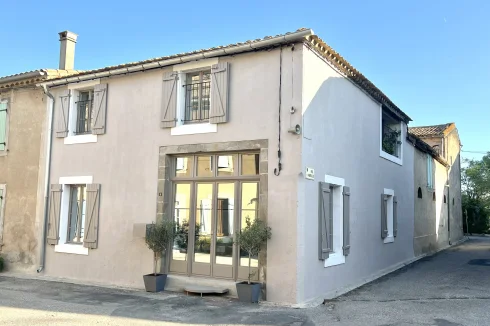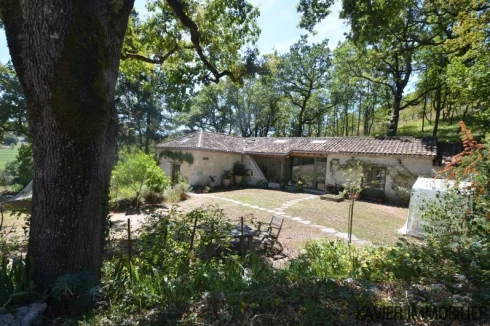Can Air France Become a Low-Cost Airline?
Wednesday 15 September 2010
Air France is proposing to create a new low-cost subsidiary, but will the pilots allow them?
Although there has been precious little information from Air France, press reports last month suggested that the airline was proposing to establish a new low-cost subsidiary to compete with Easyjet and Ryanair on domestic routes in France.
The move is a response to the establishment of operating bases in France by both Easyjet and Ryanair, from where they have started to fly to a growing number of destinations in France where Air France has traditionally enjoyed a monopoly.
Air France is also facing increasing pressure on domestic routes from the TGV high-speed rail service. Journeys from Paris to cities such as Lyon and Geneva, Bordeaux, Marseilles and Strasbourg are now well served by the French bullet train.
The ease and comfort of travel on the train, compared to the growing struggle of travel by air has become an attractive option for many French travellers.
Under the new project, code named ‘Air France Express’, the airline proposes that the new subsidiary will fly domestic routes out of three main cities – Toulouse, Marseilles, and Nice – where the aircrews will also be based.
By locating the airline outside of Paris, and using the pilots to fly shuttle flights on a point to point basis within France, the company removes the cost of accommodating aircrews away from their homes.
Crucially, it seems the company is also proposing that the amount of flying time undertaken each year by the pilots be increased from 600 to 750, in line with the flying hours undertaken by pilots operating with the low-cost airlines.
In return for a 20% increase in productivity, the company are proposing a 5% increase in salary.
Although the pilots have stated their public opposition to the plans, it is clear from them that they also see the writing on the wall from low-cost carriers and the TGV, for there are indications they are prepared to accept the idea of provincial bases.
However, they argue that Air France should adopt a much broader strategy than merely asking for more work for less pay. ‘It is the structure of the company that must be examined, not merely the working conditions of staff’, argues Louis Jobard, president of the Syndicat des Pilotes de Ligne (SNPL).
The pilots do not specify exactly what they mean by a wider review, and it is hard to see how their own conditions of employment can be ignored in any broader shake-up.
Will it Work?
There is no doubt that Air France has a lot going for it in the creation of low-cost subsidiary, notably due to the economies of scale it is able to achieve in the purchase of aviation fuel, the large range of aircraft at its disposal, and the ticketing infrastructure already in place.
The airline also has the experience of having already purchased a low-cost domestic airline in 1990, when Air Inter was merged into the group. It also owns the regional airlines CityJet and Brit Air.
The company also has previously tried to establish a low-cost airline, when in 2007, it imported into France the KLM subsidiary Transavia. However, the idea floundered on the opposition of the pilots who were unwilling to accept tougher employment conditions.
As a result, Transavia operates out of Paris and Amsterdam, and is used mainly to carry passengers to holiday destinations in Southern Europe and Northern Africa. The employment conditions of the pilots are less favourable than the parent airline, although with salaries broader similar.
So the major difficulty for the company in now trying to adopt a more widespread low cost model continues to be the opposition they will face from their pilots, a problem that has plagued Air France for over 20 years.
Even by Air France’s own figures, as recently revealed in the French press, the average cost of providing a seat on Air France is €118, while the cost at Easyjet is €55, some 52% lower.
The differences between the companies in the cost of the airline crews is even greater, with those at Air France costing 70% more than at Easyjet.
Most experts agree that Air France suffers from a range of structural costs that do not handicap the low-cost airlines, and it is noteworthy that its own subsidiary Transavia does not use the Air France network for the purchase of tickets and boarding registration.
Of course there remains the vexed question of the 'marketing' support received by Ryanair from regional airport operators, but Air France also receive public subsidies for operating certain 'non-economic' routes in France.
Their competitors are also free of the political interference that inevitably accompanies the management of any large corporation in France.
In the case of Air France, the position is particularly difficult, because the company is only in existence today as the result of a bailout by the French government in the 1990s, who remain the largest shareholder.
Earlier this year Air France-KLM, Europe’s largest airline, posted a loss of €1.6 billion for the year ending March 31st 2010, compared with a loss the previous year of €815 million.
Thank you for showing an interest in our News section.
Our News section is no longer being published although our catalogue of articles remains in place.
If you found our News useful, please have a look at France Insider, our subscription based News service with in-depth analysis, or our authoritative Guides to France.
If you require advice and assistance with the purchase of French property and moving to France, then take a look at the France Insider Property Clinic.





